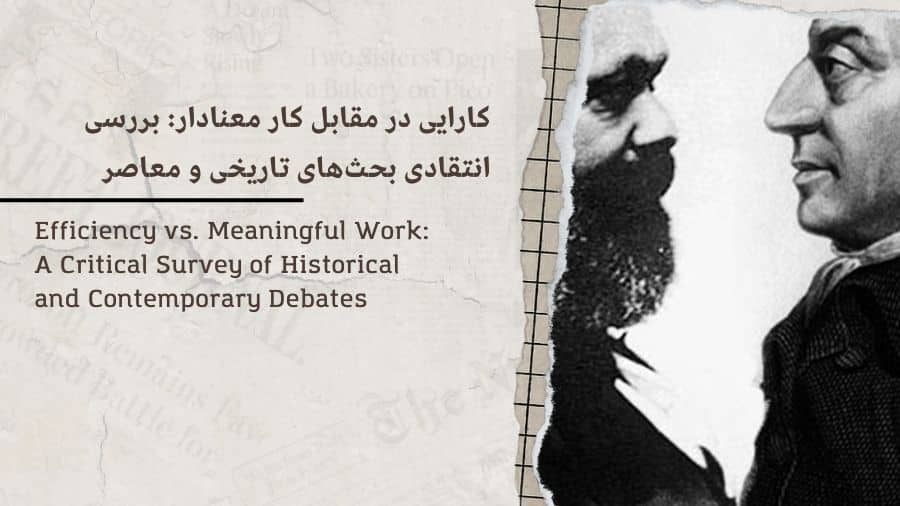This paper considers the trade-off between the demand for efficiency and the demand for meaningful work. It asks whether this trade-off should be treated as inevitable or potentially resolvable, at least under reformed conditions.
It compares historical and contemporary debates where the trade-off features. It focuses initially on Adam Smith’s account of the division of labour in which less meaningful work is assumed to be the necessary price of higher efficiency.
It then examines Karl Marx’s analysis of work, showing how it differs from that of Smith. Marx addressed the scope for achieving meaningful work whilst supporting needs fulfilment in a future socialist society.
In addition, the paper looks at how the ideas of Smith and Marx relate to modern discussions that focus on the capacity of new digital technologies to lighten work. Finally, it draws lessons for welfare economics on how meaningful work and efficiency might be reconciled.
This is the Persian translation of the article:
Spencer, A. David. “Efficiency vs. Meaningful Work: A Critical Survey of Historical and Contemporary Debates.” Contributions to Political Economy 43, no. 1 (July 2024): 21–36.


